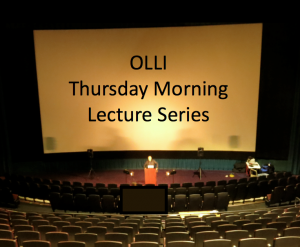Presented By: Osher Lifelong Learning Institute (50+)
LOOKING INTO THE MINDS OF MANAGERS AND CONSUMERS
Richard P. Bagozzi

Dr. Bagozzi is the Dwight F. Benton Professor of Behavioral Science in
Management at the Ross School of Business, University of Michigan. He specializes in basic research into human emotions, decision-making, social identity, ethics, and action. This work has been applied to the study of consumers, patients, doctors, salespersons, managers, military officers, and organizations. Recently he has investigated biological bases of manager and consumer behavior by use of fMRI and genetic analyses to study mental behavior.
We will explore what goes on in our brains (as consumers and managers) when we make decisions. Three universal, fundamental mental phenomena will be examined: theory of mind processes (based on research into autism), human empathy (as related to mirror neurons in the brain), and the underpinnings of the Machiavellian (i.e., psychopathic) mind in business and politics. Time permitting, we will consider how our genes operate, in conjunction with environmental and psychological triggers, to influence our behavior.
This is the third in a six-lecture series. The subject is Behavioral and Social Sciences: Real World Applications. The next lecture will be March 29, 2018. The title is The Why and How of Behavioral Economic Strategies to Promote Healthy Decisions.
Management at the Ross School of Business, University of Michigan. He specializes in basic research into human emotions, decision-making, social identity, ethics, and action. This work has been applied to the study of consumers, patients, doctors, salespersons, managers, military officers, and organizations. Recently he has investigated biological bases of manager and consumer behavior by use of fMRI and genetic analyses to study mental behavior.
We will explore what goes on in our brains (as consumers and managers) when we make decisions. Three universal, fundamental mental phenomena will be examined: theory of mind processes (based on research into autism), human empathy (as related to mirror neurons in the brain), and the underpinnings of the Machiavellian (i.e., psychopathic) mind in business and politics. Time permitting, we will consider how our genes operate, in conjunction with environmental and psychological triggers, to influence our behavior.
This is the third in a six-lecture series. The subject is Behavioral and Social Sciences: Real World Applications. The next lecture will be March 29, 2018. The title is The Why and How of Behavioral Economic Strategies to Promote Healthy Decisions.